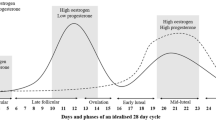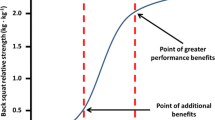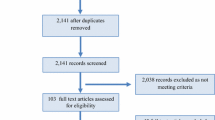Abstract
Causal attributions given by athletes for performance can influence performance satisfaction, expectation of future success, and persistence in training and competition. Young and inexperienced athletes often show gender differences in sport attribution, with males attributing success to controllable or stable factors like ability and effort, and females attributing success to uncontrollable or unstable factors like luck and social support. Would older, more experienced female triathletes also show a self-defeating attribution style and see themselves with little control over sport performance? Using questionnaires, 624 triathletes (mostly white, 443 males, 181 females) rated the importance of 13 attributions for triathlon performance. Unlike past research, female triathletes attributed more importance than males to factors they can attempt to control (psychological state, diet, and weight). After a recent success, female triathletes downplayed the importance of luck and social support.
Similar content being viewed by others
References
Bird, A. M., & Williams, J. M. (1980). A developmental-attributional analysis of sex-role stereotypes for sport performance. Developmental Psychology, 16, 319–332.
Deaux, K., & Farris, E. (1977). Attributing causes for one's own performance: The effects of sex, norms, and outcome. Journal of Research in Personality, 11, 59–72.
Duncan, T., & McAuley, E. (1987). Efficacy expectations and perceptions of causality in motor performance. Journal of Sport Psychology, 9, 385–393.
Durkin, K. (1987). Social cognition and social context in the construction of sex differences. In M. A. Baker (Ed.), Sex differences in human performance. New York: Wiley.
Greenberg, J., Pyszczynski, T., & Solomon, S. (1982). The self-serving attributional bias: Beyond self-presentation. Journal of Experimental Social Psychology, 18, 56–57.
Grove, J. R., & Pargman, D. (1986). Attributions and performance during competition. Journal of Sport Psychology, 8, 129–134.
Iso-Ahola, S. E. (1977). Immediate attributional effects of success and failure in the field: Testing some laboratory hypotheses. European Journal of Social Psychology, 7, 275–296.
Iso-Ahola, S. E. (1979). Sex-role stereotypes and causal attributions for success and failure in motor performance. Research Quarterly for Exercise and Sport, 50, 630–640.
Jourden, F. J., Bandura, A., & Banfield, J. T. (1991). The impact of conceptions of ability on self-regulatory factors and motor skill acquisition. Journal of Sport and Exercise Psychology, 13, 213–226.
Kernis, M. H., Zuckerman, M., & McVay, E. (1988). Motivational factors affecting performance: The impact of perceived locus of casualty. Personality and Social Psychology Bulletin, 14, 524–535.
Lenney, E. (1977). Women's self-confidence in achievement settings. Psychological Bulletin, 84, 1–13.
Lirgg, C. C. (1991). Gender differences in self-confidence in physical activity: A meta-analysis of recent studies. Journal of Sport and Exercise Psychology, 13, 294–310.
Luginbuhl, J., & Bell, A. (1989). Casual attributions by athletes: Role of ego involvement. Journal of Sport and Exercise Psychology, 11, 399–407.
Mark, M. M., Mutrie, N., Brooks, D. R., & Harris, D. V. (1984). Causal attributions of winners and losers in individual competitive sports: Toward a reformulation of the self-serving bias. Journal of Sport Psychology, 6, 184–196.
Martin, J. J., & Gill, D. L. (1991). The relationships among competitive orientation, sport confidence, self-efficacy, anxiety, and performance. Journal of Sport and Exercise Psychology, 13, 149–159.
Matteo, S. (1986). The effect of sex and gender-schematic processing on sport participation. Sex Roles, 15, 417–432.
McAuley, E. (1991). Efficacy, attributional, and affective responses to exercise participation. Journal of Sport and Exercise Psychology, 13, 382–393.
McAuley, E., & Gross, J. B. (1983). Perceptions of causality in sport: An application of the Causal Dimension Scale. Journal of Sport Psychology, 5, 72–76.
McAuley, E., Duncan, T., & Tammen, V. V. (1989). Psychometric properties of the intrinsic motivation inventory in a competitive sport setting: A confirmatory factor analysis. Research Quarterly for Exercise and Sport, 60, 48–58.
Mullen, B., & Riordan, C. A. (1988). Self-serving attributions for performance in naturalistic settings: A meta-analytic review. Journal of Applied Social Psychology, 18, 3–32.
Nicholls, J. G. (1975). Causal attributions and other achievement-related cognitions: Effects of task outcomes, attainment value, and sex. Journal of Abnormal Psychology, 31, 379–389.
Nicholls, J. G. (1976). Effort is virtuous, but it's better to have ability: Evaluative responses to perceptions of effort and ability. Journal of Research in Personality, 10, 306–315.
Pedhazur, E. J. (1973). Multiple regression in behavioral research: Explanation and prediction (2nd ed.). New York: Holt, Rinehart, and Winston.
Petruzello, S. J., & Corbin, C. B. (1988). The effects of performance feedback on female self-confidence. Journal of Sport and Exercise Psychology, 10, 174–183.
Rejeski, W. J., & Brawley, L. R. (1983). Attribution theory in sport: Current status and new perspectives. Journal of Sport Psychology, 5, 77–99.
Robinson, D. W., & Howe, B. L. (1989). Appraisal variable/affect relationships in youth sport: A test of Weiner's attribution model. Journal of Sport and Exercise Psychology, 11, 431–443.
Rudisill, M. E. (1988). Sex differences in various cognitive and behavioral parameters in a competitive situation. International Journal of Sport Psychology, 19, 296–310.
Rudisill, M. E. (1989). Influence of perceived competence and causal dimension orientation on expectations, persistence, and performance during perceived failure. Research Quarterly for Exercise and Sport, 60, 166–175.
Rudisill, M. E., & Singer, R. N. (1988). Influence of causal dimension orientation on persistence, performance, and expectations of performance during perceived failure. Journal of Human Movement Studies, 15, 215–228.
Russell, D. W., McAuley, E., & Tarico, V. (1987). Measuring causal attributions for success and failure: A comparison of methodologies for assessing causal dimensions. Journal of Personality and Social Psychology, 52, 1248–1257.
Sanguinetti, C., Lee, A. M., & Nelson, J. (1985). Reliability estimates and age and gender comparisons in sex-typed activities. Journal of Sport and Exercise Psychology, 7, 379–388.
Scanlan, T. K., & Passer, M. W. (1980). Self-serving biases in the competitive sport setting: An attributional dilemma. Journal of Sport Psychology, 2, 124–136.
Schlenker, B. R. (1975). Self-presentation: Managing the impression of consistency when reality interferes with self-enhancement. Journal of Personality and Social Psychology, 32, 1030–1037.
Taylor, J. (1989). The effects of personal and competitive self-efficacy and differential feedback on subsequent self-efficacy and performance. Cognitive Therapy and Research, 13, 67–80.
Taylor, D. M., & Doria, J. R. (1981). Self-serving and group-serving bias in attributions. Journal of Social Psychology, 113, 201–211.
Vallerand, R. J. (1987). Antecedents of self-related affects in sport: Preliminary evidence on the intuitive-reflective appraisal model. Journal of Sport Psychology, 9, 161–182.
Vealey, R. S. (1986). Conceptualization of sport-confidence and competitive orientation: Preliminary investigation and instrument development. Journal of Sport Psychology, 8, 221–246.
Volp, A., & Keil, U. (1987). The relationship between performance, intention to drop out, and interpersonal conflict in swimmers. Journal of Sport Psychology, 9, 358–375.
Watkins, B., & Montgomery, A. B. (1989). Conceptions of athletic excellence among children and adolescents. Child Development, 60, 1362–1372.
Weiner, B. (1985). An attributional theory of achievement motivation and emotion. Psychological Review, 92, 548–573.
Author information
Authors and Affiliations
Additional information
This research was supported in part by grants from the Penn State University College of Liberal Arts Fund for Faculty Research and the Penn State University Schuylkill Campus Research Assistant Program.
We gratefully acknowledge the help in subject recruitment given to us by the organizers of the following triathlons: the 1985 Hawaii Ironman in Kona, Hawaii, the 1987 Canadian Ironman in Penticton, British Columbia; and the 1987 National Championships in Hilton Head, South Carolina. We also thank Bryan Raudenbush for data processing, Traci Shott for references, Michael Goss for graphics, and Diane Evans for manuscript preparation.
Rights and permissions
About this article
Cite this article
Hendy, H.M., Boyer, B.J. Gender differences in attributions for triathlon performance. Sex Roles 29, 527–543 (1993). https://doi.org/10.1007/BF00289326
Issue Date:
DOI: https://doi.org/10.1007/BF00289326




